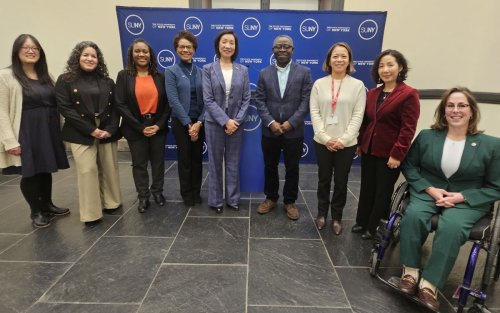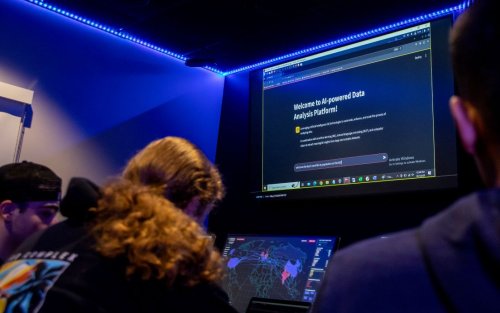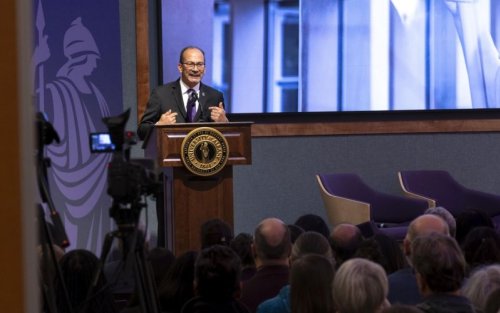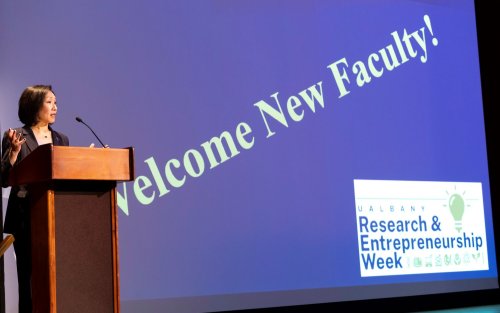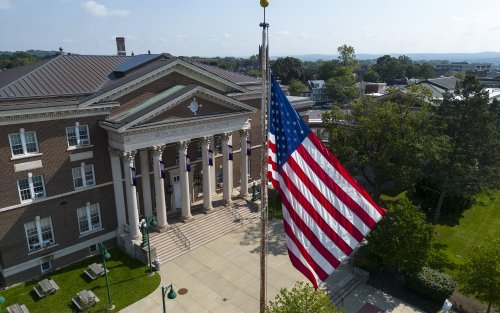Honors & Awards
UAlbany is home to more than 1,200 world-class faculty members. The Provost's Office is proud of their accomplishments and here to support their endeavors.
UAlbany is home to more than 1,200 world-class faculty members. The Provost's Office is proud of their accomplishments and here to support their endeavors.
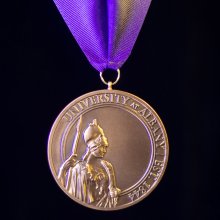
The University at Albany is home to more than 1,200 world-class faculty members. The Provost's Office is proud of their accomplishments and here to support their endeavors.
We encourage faculty members to notify us of external recognition.
Learn about awards offered by SUNY and UAlbany, including how to apply and which UAlbany faculty members have previously won each award.
Learn about nationally and internationally competitive awards and honors, including how to apply and which UAlbany faculty have been named awardees.
Named chairs, professorships and other academic positions recognize faculty members and honor donors’ meaningful generosity.
How to Write a Winning Nomination Letter (University at Buffalo)
Securing Strong Letters of Support (University at Buffalo)
Writing Effective Award Nomination and Support Letters (Biophysical Society)
Tips for writing a strong Arts Award nomination letter (University of Waterloo)
The benefits of awards — even if you don’t win (Science)
Nebraska faculty share tips for garnering external recognition (University of Nebraska-Lincoln)
Braithwaite unlocks secrets to awards success (University of Nebraska-Lincoln)
Forget mentors — what we really need are fans (Chronicle of Higher Education)
